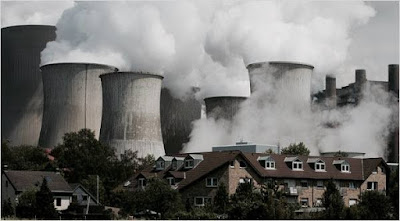Promising Modes of Public Transport
Fuel technologies such as biofuel and biodiesel, in addition to electric vehicles, represent a new trend in environmentally sound and economically beneficial mass transit. The higher the quantity and quality of public transport, the greater becomes the opportunity and incentive for people to look beyond traditional car use. Biofuels, ethanol and biodiesel, are now standard additions or replacements for traditional gasoline throughout much of the world.
One of the more promising modes of public transport is rail, particularly electric urban rail. Light rail provides various benefits relating to cost effectiveness; the low maintenance needs and low energy demands of light rail make this form of transportation highly efficient. Environmental benefits include the reduction of greenhouse gasses such as carbon dioxide, as well as the reduction of carbon monoxide and nitrogen oxide. It's important to note that the benefits of light rail to the environment increase exponentially when the local grid in the area where the light rail is deployed, also uses renewable energy vs. fossil fuels. This way, the net output of greenhouse gases from light rail is dramatically decreased.
Traffic congestion is greatly reduced in any urban environment, and ultimately light rail systems can replace highways. Light rail creates jobs both by producing a new source of capital and by creating new, busy economic centers. Not only does light rail ideally replace the use of fossil fuels (when used in conjunction with renewable-energy supplied electricity), but the development cost of light rail systems is about half that of building freeways.
Another exciting sign of progress in transportation is the further development of hybrid, plug-in hybrid, electric-only and hydrogen-fueled cars and buses. As far as a complete departure from middle-east oil dependency, first world nations must embrace technologies now available which offer alternatives to fossil fuels. The newest and brightest of these technologies is hydrogen fuel.
Hydrogen is used in mass transit vehicles in some countries in Europe (especially in Norway, Germany and Iceland), and Japan - just to name a few countries. One great benefit of hydrogen fuel is that it produces absolutely zero emissions, with water vapor being the only by-product.
Hydrogen buses are being tested in Europe by an organization known as Clean Hydrogen in European Cities (CHIC). Some of the cities included are Cologne, Berlin, London, Oslo and Milan. These cities are seen as leaders in hydrogen fuel cell for transit by CHIC. If this program succeeds, hydrogen-based transit will spread throughout Europe, and ultimately, globally.
HyFleet:CUTE project:
Sustainable mass transit reduces CO2 emissions, helps to produce numerous financial benefits, creates urban centers of productivity and reduces dependence on foreign oil. As far as carbon-based transit, the amount of oil used per passenger is greatly reduced with the use of any type of sustainable mass transit compared to the use of standard fossil fuel dependent cars.


